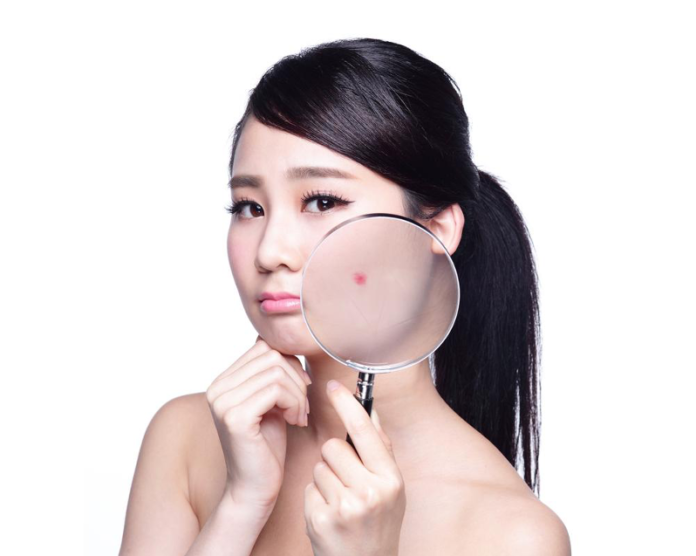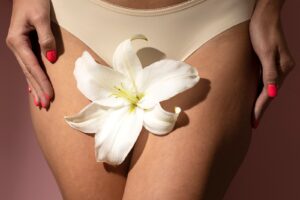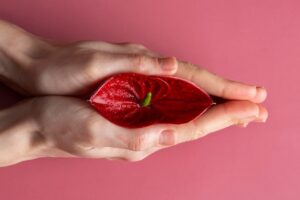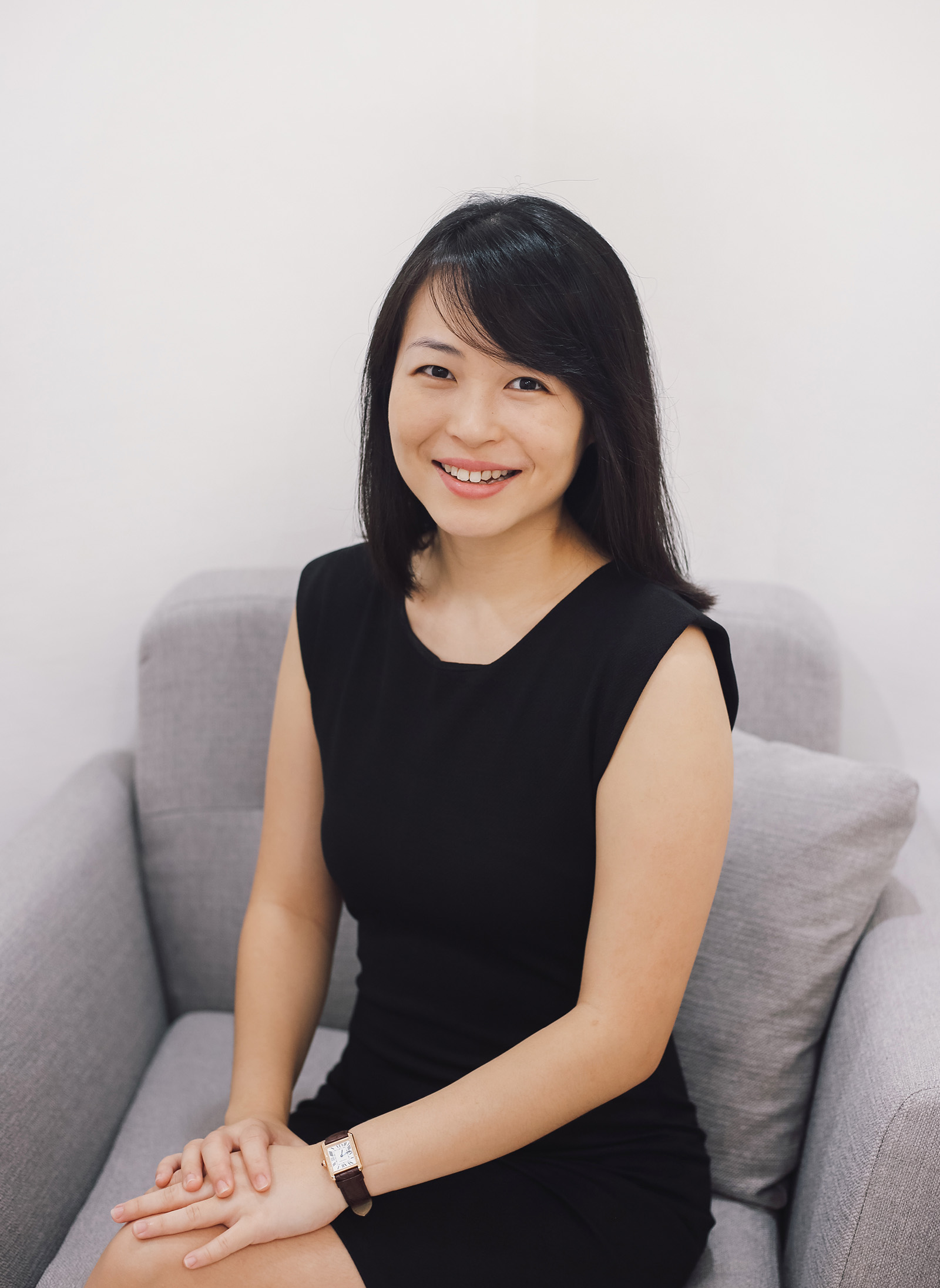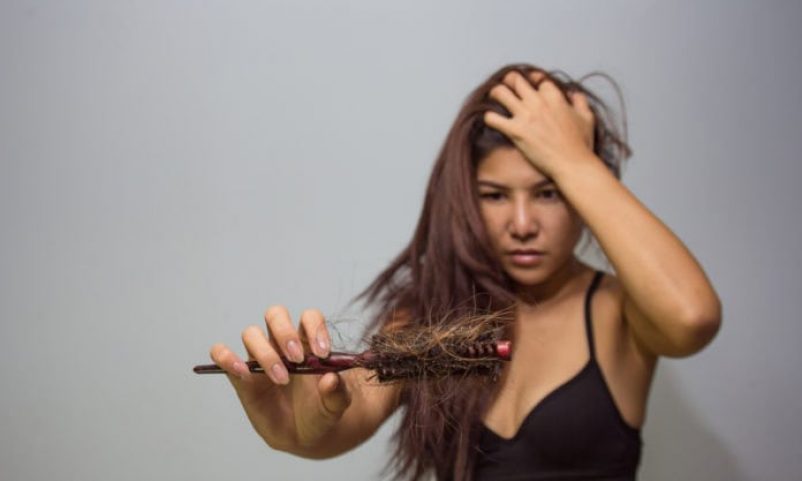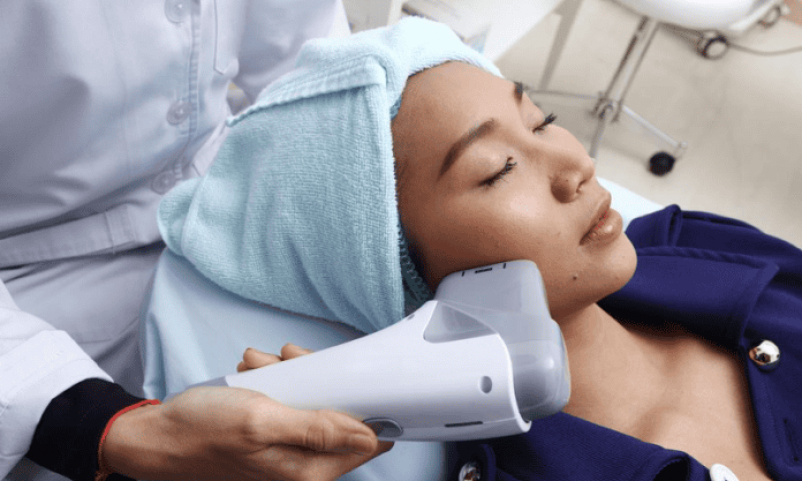You might have gotten your first pimple during your teens or pre-teens. But believe it or not, acne can still affect you in your twenties and even up to your forties!
Unfortunately, popping those pesky spots might do more damage than good. Find out how you can deal with this unwanted guest on your face by following our guide.
What is Acne?
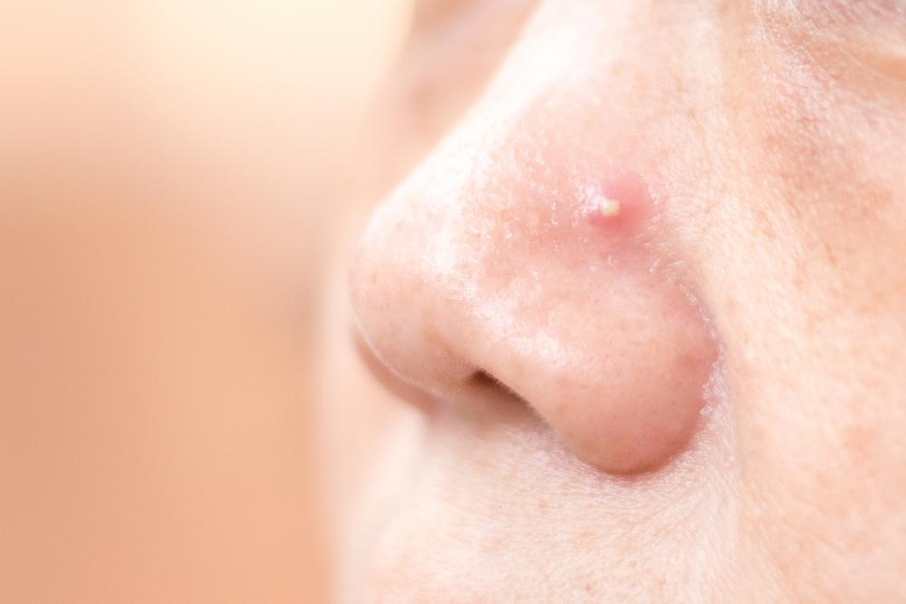
It rears its ugly head, shows up uninvited and overstays its welcome – it is acne.
No one likes dealing with acne. But in order to get rid of it, you need to first understand what exactly acne is.
The term acne is sometimes used interchangeably with the more familiar term called pimples. On the contrary, pimples are actually a type of acne.
Acne is a skin condition caused by clogged hair follicles and oil glands. It can be caused by a variety of factors from poor hygiene, hormonal imbalance, and even an unhealthy diet.
Types of Acne
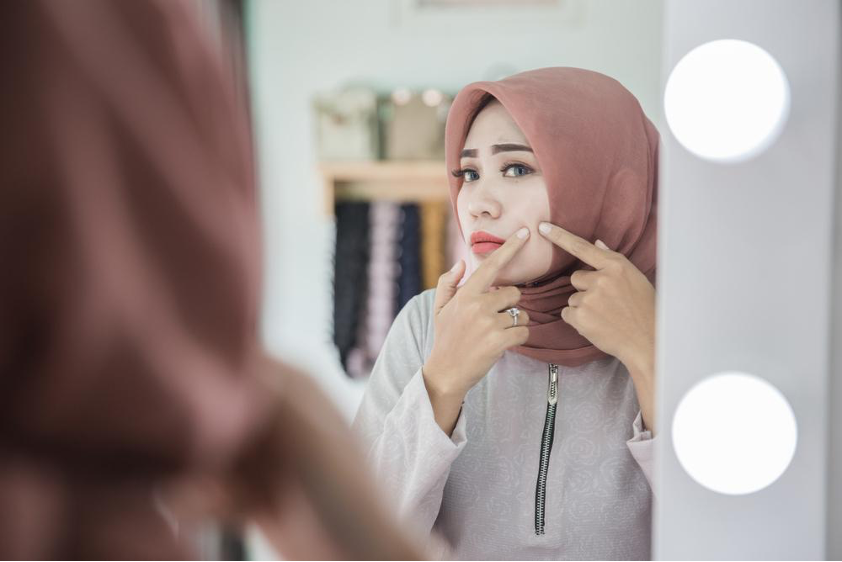
Besides pimples, there are other types of acne as well. These include but are not limited to:
1) Whiteheads: whiteheads occur when oil, dead skin cells and bacteria become trapped in a pore. They appear white, which is why they are called whiteheads. They appear mostly around the nose, forehead and cheek area
2) Blackheads: caused by clogged hair follicles, they are a mild type of acne that looks dark on the surface. Besides the face, they can also appear on the back
3) Papules: papules usually occur when whiteheads or blackheads cause surrounding skin irritation and inflammation. These small pink and red dome-shaped bumps can affect one’s skin colour and texture. They are also commonly seen on the chest area.
4) Nodules: nodules are harder, painful and inflamed lumps that appear deep within the skin. This is usually due to deeper clogging of pores and tissue inflammation.
5) Pustules: pustules are larger and redder bumps on the skin that are filled with pus and can be painful when pressed
6) Cysts: cysts are larger soft bumps that are deep within the skin, they can be caused by clogging of sebaceous glands or bacterial infection and can be filled with pus.
Tips to Prevent Acne
No one likes dealing with acne. So how do you prevent it?
Unfortunately, there is no fail proof way to banish acne from your body entirely. Then again, there are various measures one could undertake to manage acne breakouts. Here are some of them:
1. Have a Beauty Regime (and Stick to It)
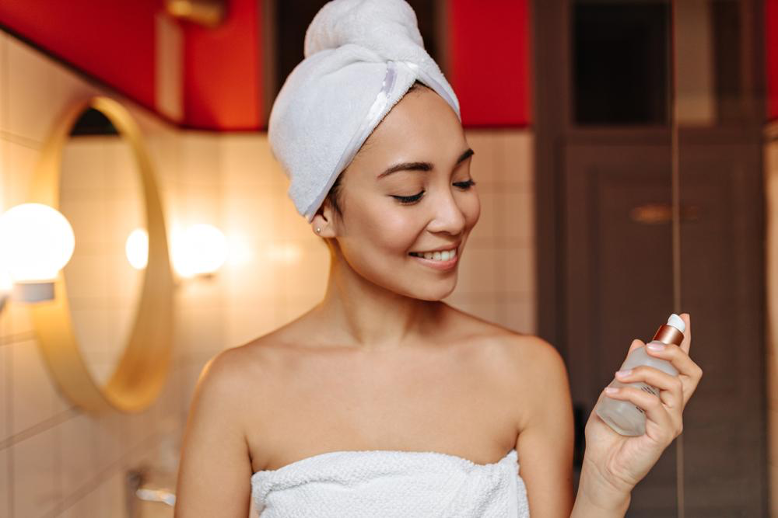
Humans are creatures of habit and we stick to different routines to get us through our day. But if there is one habit that is easy to neglect, it is having a proper skincare routine.
Taking time out of your day to show your skin some much needed tender loving care is important when you want to fight off blemishes. Consistent actions produce consistent results and if you want crystal clear skin, sticking to a beauty regime is of paramount importance.
2. Remove ALL Makeup
After a long day, the first thing you would want to do is collapse on your bed and fall into a deep slumber. As tempting as it may be, this will most definitely lead to makeup clogging your pores and acne forming.
Removing makeup rids your skin of the residue and also cleans away all the grime from your day. Use a makeup remover before cleansing your face.
3. Stay Hydrated
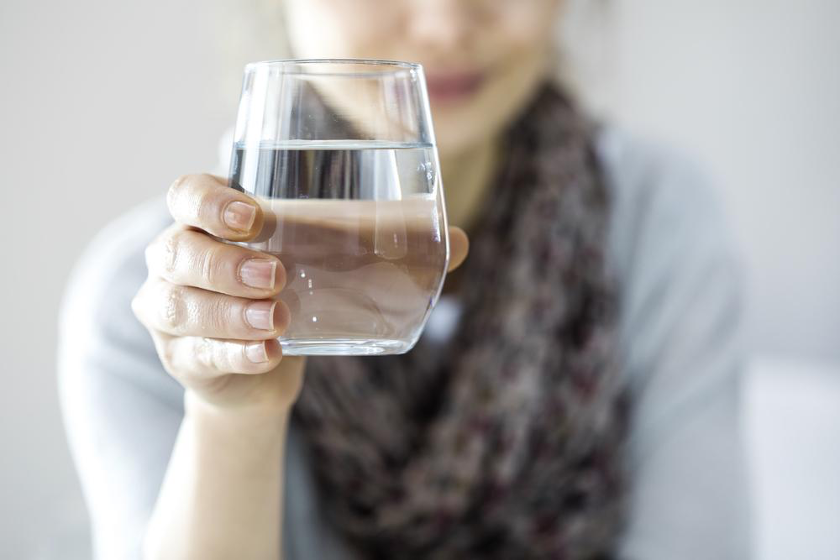
It might seem like an old wives’ tale but staying hydrated does make a difference.
Drinking enough water helps flush out toxins to improve your complexion. It also supports your digestive health and slows ageing.
4. Manage Stress
Stress is neither good for the mind or the body. It can lead to pimples and other health issues. Stress can also affect your productivity and lead you to feel fatigued.
Find ways to deal with stress during hectic periods. Try exercising, picking up a new hobby, or some self-care to get your mind off stressful situations.
5. Stick to a Nutritious Diet
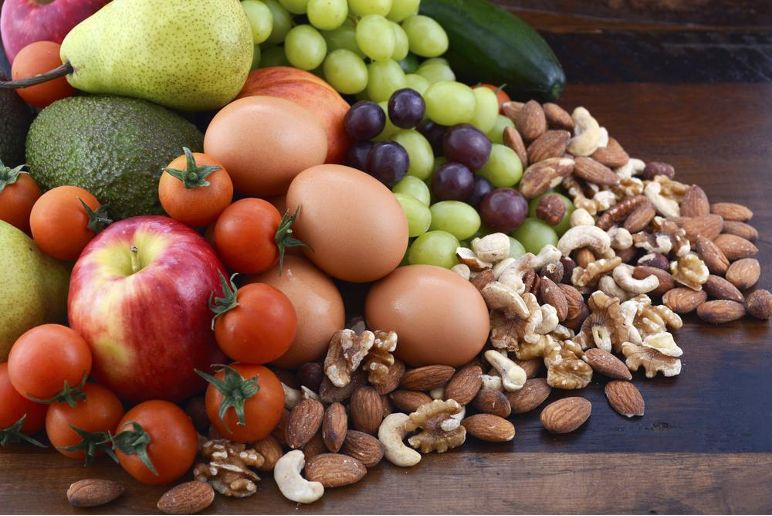
Some foods have been known to wreak havoc on your skin. These include:
- Greasy foods (like pizza)
- Dairy
- Chocolate
- Foods that are high in sodium (potato chips)
While you would not have to abstain from these foods completely, you would want to include foods that are rich in Omega-3 acids, vitamin A, vitamin C, and vitamin E such as nuts and leafy greens, for a more well-balanced diet.
When to Seek Help
While acne can affect anyone at any age, there is no one-size-fits-all cure for it. Unfortunately, for serious cases of acne that involve infection, flaky skin, and inflammation, one might need to consider using medical and aesthetic treatments to manage it.
There are various professional treatments to manage acne such as:
(1) Acne creams
You could consider using creams like benzoyl peroxide gel, topical antibiotic creams or retinoid creams such as Differin cream. These treatments work for mild to moderate acne. These creams contain ingredients that remove excess oil, kill bacteria and reduce inflammation and swelling.
(2) Oral medicine
Oral medications work to control acne by reducing oil production and killing bacteria. Oral medications usually require a course of a few months and may be associated with slightly more side effects compared to topical treatments. Some examples include oral antibiotics, or Isotretinoin. Speak to a doctor about what medication you should take to manage the acne.
(3) Aesthetic treatment
For more stubborn and chronic acne that is harder to treat, you might want to consider getting aesthetic treatments to avoid the side effects of oral medications. Some suitable aesthetic treatments for acne include AGNES acne treatment by using radiofrequency energy to permanently destroy stubborn overactive sebaceous glands. Pico laser and fractional CO2 laser are also useful treatment options for those experiencing acne scars.
(4) Chemical peels
Chemical peels like salicylic acid peels address dead skin cells and acne scars to regenerate the skin. They exfoliate the skin on a deeper level to clear clogged pores and reduce swelling and irritation of the skin.
If you are experiencing acne problems that don’t go away despite lifestyle modifications, it may be a good idea to seek help from an experienced healthcare professional on getting your acne treated early.


